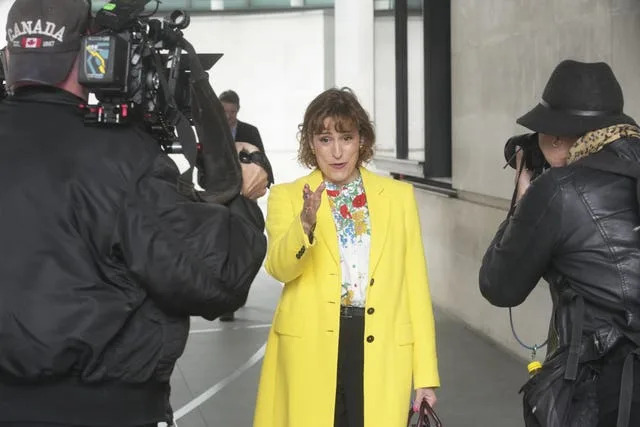
Junior doctors protest opposite Downing Street, London, during their continuing dispute over pay, June 27, 2024
THE TUC published its five-point plan to give employment rights a “significant upgrade” today — and accused bosses of a widespread failure to honour even basic rights at work.
New rights promised by Labour will mean little if not upheld, and Britain’s enforcement system is woefully underresourced, a new expert report for the union body warns.
TUC senior policy officer and report author Tim Sharp said: “The new government was elected on a platform that included making the minimum wage a living wage, basic individual rights from day one and expanded family-friendly working.
“These support a drive to ensure that good-quality work underpins an economic recovery after years of lacklustre growth and flat-lining pay.
“However, new rights are only worth something if they are upheld. And the enforcement system in this country is at breaking point.”
The report exposes Britain’s lengthy neoliberal experiment with ultra-flexible labour markets combined with patchy and under-resourced enforcement.
It has led to the rise of widespread abuse of migrant workers — and estimates of up to 130,000 victims of modern slavery in Britain.
More widely, millions of workers are losing out on wages and key entitlements such as holiday pay due to lack of enforcement.
Decent employers are being undercut by those who don’t meet their legal duties, with enforcement so underresourced that it is estimated that the national minimum wage enforcement team could only inspect employers once every 500 years.
The situation is made worse by only a quarter of workers being covered by trade union collective agreements, while the tribunal system is under strain with a backlog of tens of thousands of cases.
The TUC urged Labour last month to crack down on the growing number of businesses offering jobs on less than the national minimum wage. It said dozens of non-compliant vacancies offering less than the £11.44 per hour are being posted on major job sites every week.
Mr Sharp’s report notes that Labour has pledged to introduce a “fair work agency” bringing together several existing state enforcement bodies “to ensure greater co-ordination in the face of complex enforcement challenges.”
A proposed agency could bring together the Gangmasters & Labour Abuse Authority (GLAA), the Employment Agency Standards Inspectorate (EAS) and HM Revenue & Customs’ national minimum wage and national living wage team.
Mr Sharp calls for it to be a single enforcement body with a strong union voice in its governance structures. He says the agency must be able to share data effectively and deal with multiple breaches of employment rights in the course of a single investigation.
Unions would be ideally placed to assist by spotting emerging trends in employments rights issues, he adds, and this first-hand knowledge should be used to shape enforcement strategies.
He says unions should be given board seats on the proposed agency and have a formal strategic oversight role in the labour market enforcement system “as part of a tripartite approach to governance.”
The report says there is a strong case for extending the GLAA’s licensing model — used to tackle exploitation in the shellfish-gathering, food processing, agriculture and horticulture sectors — to sectors such as social care, construction and hospitality.
“There are high proportions of workers in these sectors who are vulnerable to exploitation because of their employment or immigration status and there is evidence of exploitative working practices routinely being used,” Mr Sharp says.
“The inspections and routine monitoring of standards that licensing entails would help prevent exploitation, improve intelligence gathering and ensure that criminal prosecutions are targeted at the worst cases.”
His report calls for the proposed fair work agency to recycle fines back into the enforcement system and urges a major boost to its number of inspectors and inspections of employers.
He warns that Britain is potentially breaching the UK-EU Trade & Co-operation Agreement by failing to meet International Labour Organisation (ILO) recommendations to have one labour market inspector per 10,000 workers.
The report adds that Britain must also crack down on the exploitation of migrant workers by building international links and protection for workers to stop them being deterred from making complaints for fear of being referred to immigration enforcement.
A spokeswoman for Momentum said: “This demonstrates that simply passing pro-worker legislation is insufficient.
“The British state is structurally hostile to workers’ interests, and the job of the Labour government is to use its power to decisively reverse the power relations between capital and labour.”















